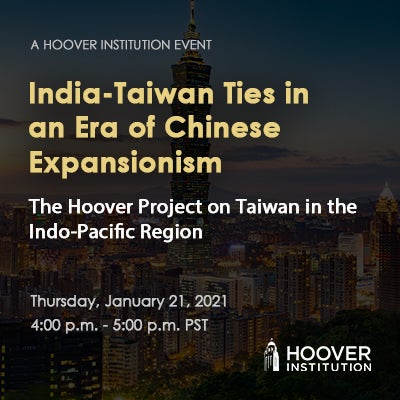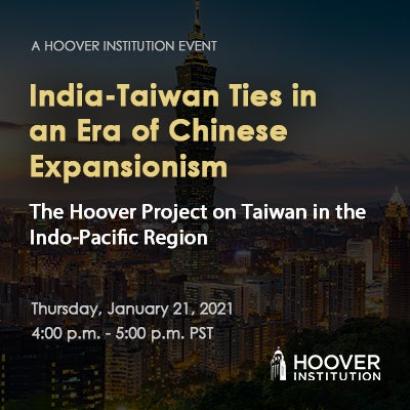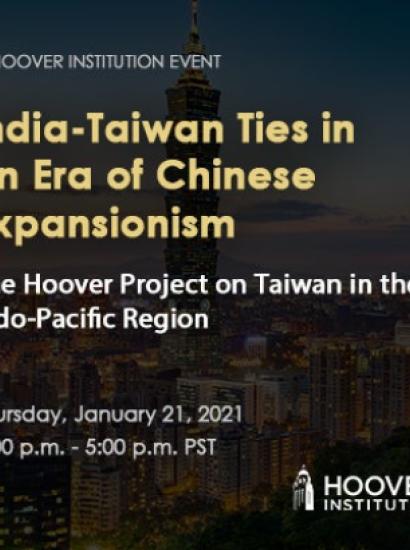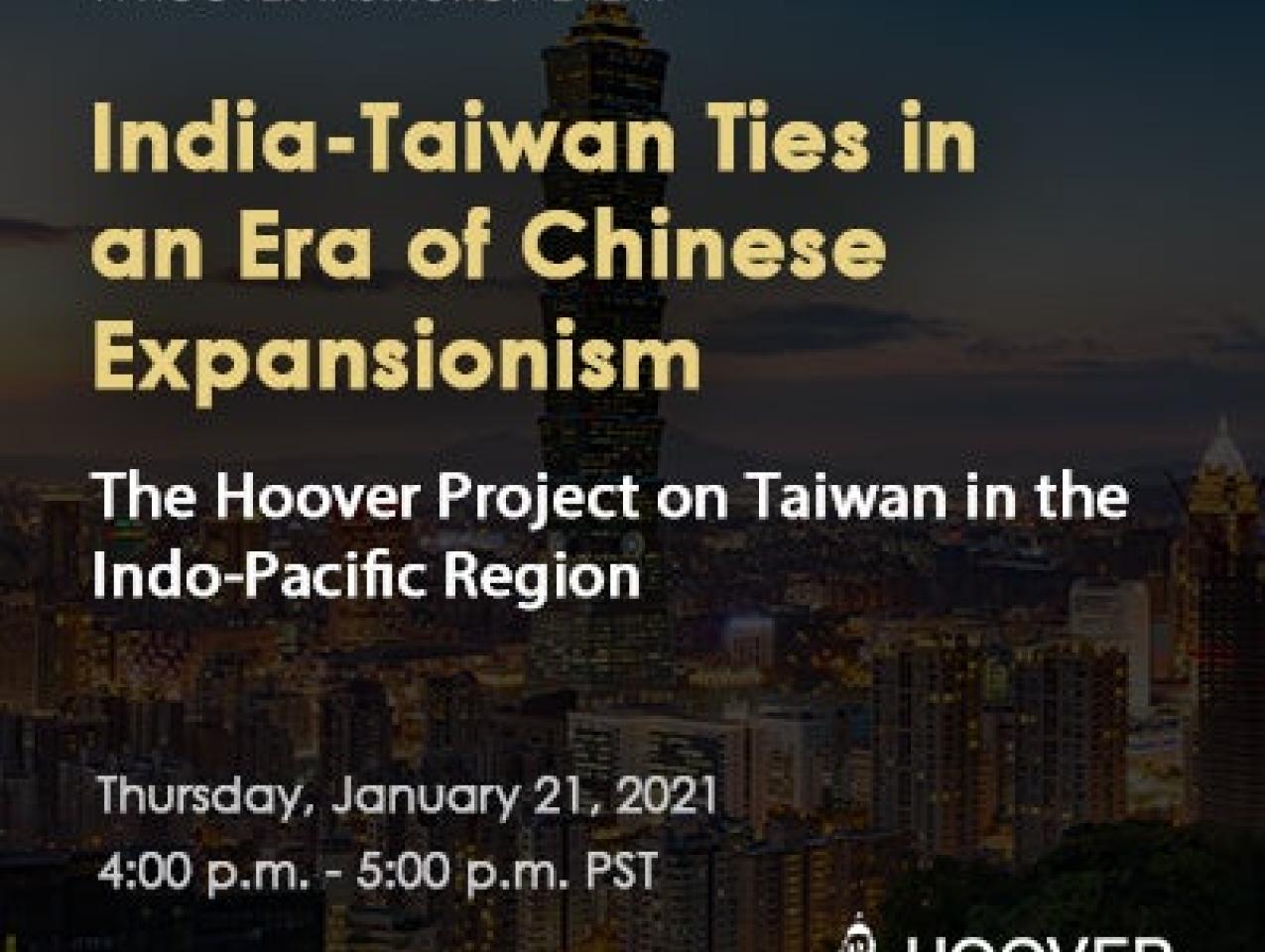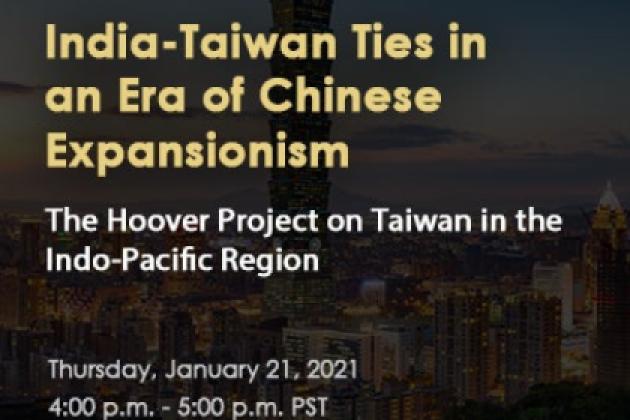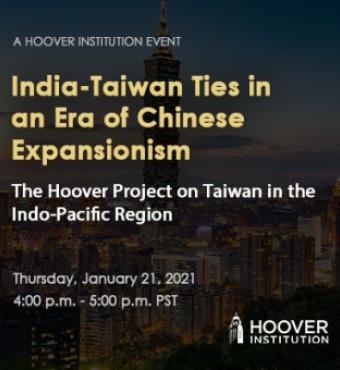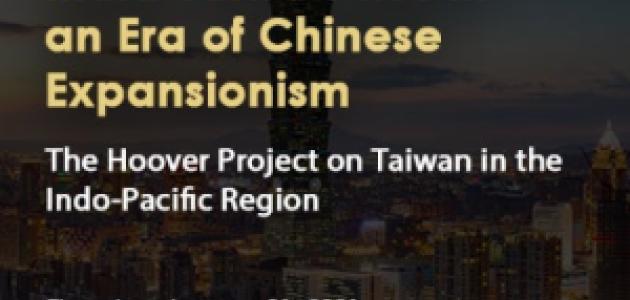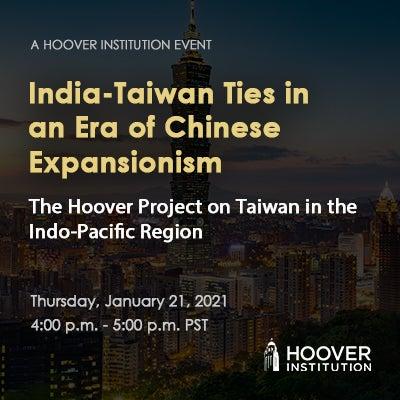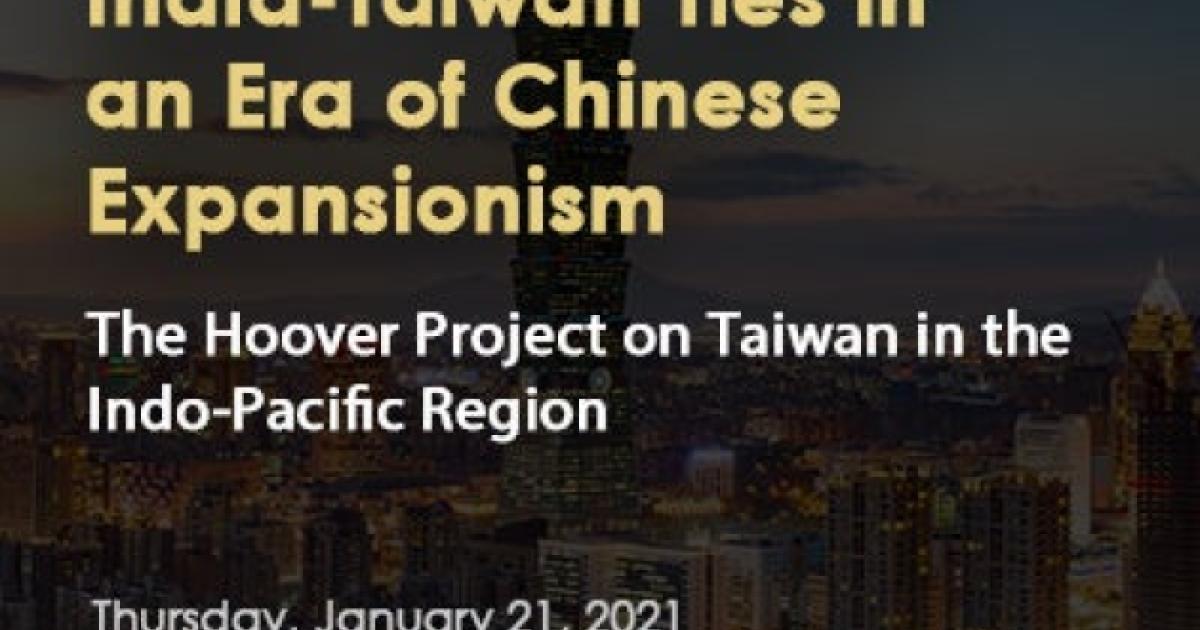
The Hoover Institution hosted India-Taiwan Ties in an Era of Chinese Expansionism on Thursday, January 21, 2021 from 4:00 p.m. - 5:00 p.m. PST.
As tensions between India and China have mounted over the past few years, India’s relations with Taiwan have become increasingly warm. In the face of expanding Chinese influence in the Indo-Pacific, New Delhi and Taipei have pursued initiatives to strengthen economic exchanges, improve supply chain resilience, jointly advance science and technology, and cooperate on traditional and non-traditional security issues. In this talk, Jagannath P. Panda will speak about recent developments in India-Taiwan ties, the prospects for continued bilateral cooperation, and the implications for geopolitics in the Indo-Pacific.
Featured Speaker
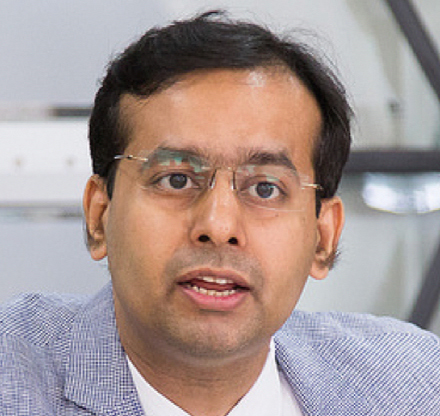
Dr. Jagannath P. Panda is a Research Fellow at the Manohar Parrikar Institute for Defense Studies and Analyses (MP-IDSA), New Delhi. He is in charge of East Asia Centre at the MP-IDSA, and looks after the track-II and track 1.5 dialogue with the think-tanks in China, Taiwan, Japan and Korea. Dr. Panda is the Series Editor for Routledge Studies on Think Asia.
Dr. Panda is the author of India-China Relations: Politics of Resources, Identity and Authority in a Multipolar World Order (Routledge: 2017); and China’s Path to Power: Party, Military and the Politics of State Transition (Pentagon Press: 2010). He is the editor of the volume, India-Taiwan Relations in Asia and Beyond: The Future (Pentagon, 2016). Dr. Panda has also edited a number of books to his credit. Most recently, he has published an edited volume Scaling India-Japan Cooperation in Indo-Pacific and Beyond 2025: Connectivity, Corridors and Contours (KW Publishing Ltd. 2019), and The Korean Peninsula and Indo-Pacific Power Politics: Status Security at Stake (Routledge, 2020). He is the co-editor of the just released volume, Chinese Politics and Foreign Policy under Xi Jinping: The Future Political Trajectory (Routledge, 2020).
Dr. Panda has published in leading journals like Journal of Indo-Pacific Affairs, Journal of Contemporary China, Rising Powers Quarterly, Journal of Asian Public Policy, Journal of Asian and African Studies, Asian Perspective, Georgetown Journal of Asian Affairs, Strategic Analyses, China Report, Indian Foreign Affairs Journal, Portuguese Journal of International Affairs, The Journal of Indian and Asian Studies, On Korea: Academic Paper Series, East Asia Forum Quarterly, Megatrend Review, Journal of Indian Ocean Studies, Asian Ethnicity, among others. He has also published in various newspapers and online portals such as Nikkei Asian Review, Asia Times, The Korea Times, The Korean Herald, The Japan Times, The Independent, Australian Financial Times, The Sunday Guardian, The Hindu, The Asian Age, The Tribune, The Pioneer, The Financial Express, Deccan Herald, The Economic Times, Global Times etc. His writings have also appeared in leading strategic and international forums such as The National Interest, RUSI Commentary, 38 North, Diplomat, Asia-Pacific Issues, Asia-Pacific Bulletin, East-West Wire, The Strategist, NBAR Commentary, China Brief, The Print, Japan Forward, World in One News, Asan Forum, The Globe Post, Asia Global Online, Air World Service: All India Radio, China-India Brief, Russia & India Business Report, South Asia voices, PacNet Commentary, East Asia Forum, Defense Security, JPI Peace Net, ISDP Focus Asia, ISDP Commentary, IDSA Comment, Mainstream, World Focus, and many other online portals.
WATCH THE DISCUSSION
The Hoover Institution’s project on Taiwan in the Indo-Pacific region, chaired by Senior Fellow Larry Diamond, presented a virtual program about India-Taiwan relations in the face of aggressive and expansionist policies by the People’s Republic of China, featuring remarks by Jagannath Panda, research fellow at the Manohar Parrikar Institute for Defence Studies and Analyses. Panda’s remarks were followed by comments by Distinguished Visiting Fellow David Mulford and a question-and-answer period moderated by Research Fellow Kharis Templeman.
Panda explained the history of India-Taiwan relations and their potential to help bring peace, prosperity, and freedom to the Indo-Pacific region. He highlighted the underlying shared principles that bind the evolving relationship, such as democracy, freedom of religion, and the rule of law. He maintained that while trade between the two countries is relatively small ($7.2 billion per year), stronger commercial ties could shift supply chains away from People’s Republic of China and thus enhance regional and global economic security, especially in the sectors of education, medicine, energy, science, and technology.
Panda also outlined four fault lines that could impede progress in the India-Taiwan relationship: First is India’s historical recognition of the People’s Republic of China. In 1950, India and the PRC declared that they would peacefully coexist following the Communist victory over nationalist forces led by Taiwan’s future leader Chiang Kai-shek. Two decades later, India supported China’s replacement of Taiwan on the United Nations Security Council. The second is Taiwan’s failure to acknowledge India’s territorial claims in relation to its border with China as defined by the McMahon Line in 1914. Third, India has made strategic miscalculations by embracing China’s economic rise at the expense of forging bonds with Taiwan in the first decade of the twenty-first century. Fourth and finally, the nature of the relationship remains ambiguous and the two countries have not yet established a practical framework in which they can engage on specific policy issues.






